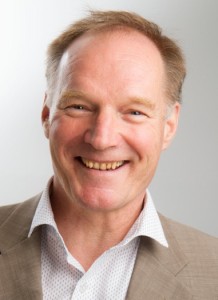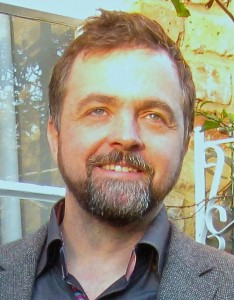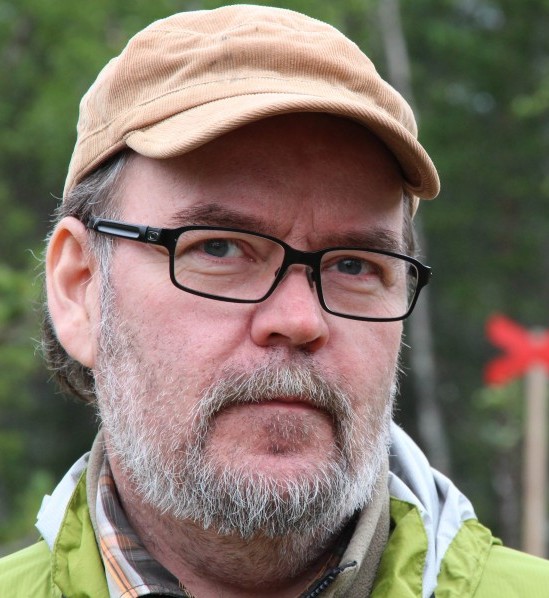Open Dialogue - Trainers' Training Programme
Commencing in October 2022
London, UK
Organised by
![]()
Interest in the Open Dialogue approach continues to grow internationally, as well as requests for organising training for a variety of mental health professionals, including peer workers.
When it comes to organising systematic Open Dialogue training programmes, it is necessary that this is led by qualified trainers, who have previously qualified in a three year practitioner/psychotherapy training in Open Dialogue or related approaches. This criterion is important to follow in order to guarantee that the new practice really follows the key elements of dialogical practice in Open Dialogue.
In response to the need for more qualified trainers, five two year Open Dialogue trainers' training programmes have been organised so far. The first such programme was organised with success by Open Dialogue UK, and since then three programmes have been organised in Helsinki and one in Sydney, Australia. Now, we are pleased to now announce this second programme in London.
This programme will be based on the two year trainers' training programme run in Helsinki, but with a greater emphasis on the role of being a trainer on international programmes. Both core trainers and guest trainers will lead some theory days in which the focus is on their experience of running trainings in a variety of settings, and what has proved most useful.
Our aim is to support participants to start their own programmes of Open Dialogue and Dialogical Practice in their home countries, but we are also interested in applications from people who would be interested in working as a trainer on international training programmes.
The emphasis in this programme will be on developing practices that mobilize the resources of clients and professionals in a collaborative way. The specific aims are:
- To develop the dialogical psychotherapeutic skills of the participants, in particular in challenging clinical (and supervision) situations.
- To develop skills for acting as supervisor, trainer and consultant.
- To enhance skills for developing social and health care towards more democratic and human practices.
We invite all those interested to apply to the programme. The closing date is 31 August 2022.
See below for further information on the training programme, and for details of the training faculty please click here.
Apply for Training
To apply for the training please click here.
Deadline for applications: 31 Aug 2022
Dates for Training
Block 1: 17-21 October 2022
Block 2: 6-10 February 2023
Block 3: 17-21 April 2023
Block 4: 19-23 June 2023
Block 5: 25-29 September 2023
Block 6: 4-8 December 2023
Block 7: 4-8 March 2024
Block 8: 3-7 June 2024
All training days start at 9am and finish at 5pm
Training Fees
£3950 per year
Enquiries
Please telephone
+44 20 8133 3441
or contact us by clicking here.
Theory days, 152 hours - 27 ECT
The theory programme will take place in blocks of 1-3 days, included within the eight five-day training blocks. Each seminar will have a specific topic, which include specific aspects of dialogical practice, being a trainer on Open Dialogue programmes, the roots of Open Dialogue (theoretical and service-level influences), specific considerations in working with particular client groups (such as children and adolescents, and people having psychotic experiences), dialogical skills in supervision and organisational consultation, and research in family therapy and social networks practices. Each participant will conduct their own research into a relevant topic within their working context and write a thesis of around 6000-8000 words (10 ECT). Time on some theory days will be dedicated to preparatory work for the thesis.Supervision days, 96 hours - 10 ECT
Supervision will take place in three small groups during the training. Video recordings of the participants' facilitation of Open Dialogue network meetings will be the main focus on supervision days. As far as the international participation and long distances allow, live supervision will also be supported. Participants will act as supervisors to each other in the later phases of the training - thus improving their supervision skills. As a part of the supervision process, each participant will need to present their work with a particular network over time, demonstrating the dialogical orientation in this work, and their ability to reflect critically on their practice.Family of Origin days, 72 hours - 3 ECT
The family of origin days are a specific form of one's own psychotherapy specific to this training. They will be conducted in three small groups working together throughout the programme.There will be around 3000 pages of relevant literature to read during the training. Participants have to undertake 300 hours of dialogical practice (co-facilitated) with networks during the course of the the training, which needs to be documented. To support their learning process, participants will be divided into peer groups, in which they study literature, prepare work for seminars, prepare their own teaching practice, and support joint learning in other ways.
Training Team
The core trainers so far confirmed for this training programme can be found below (further trainers will be added in the coming weeks). In addition to the core training team, guest trainers who have been working as trainers on a variety of international Open Dialogue training programmes will be invited to participate in the programme.
 Jorma Ahonen is a Social Psychologist and Advanced Level Psychotherapist from Helsinki, Finland. He is co-founder of the Dialogic Co., which was established in order to develop ideas on both practicing family therapy and supervising and training family therapists, supervisors and organisation consultants. Jorma writes:
Jorma Ahonen is a Social Psychologist and Advanced Level Psychotherapist from Helsinki, Finland. He is co-founder of the Dialogic Co., which was established in order to develop ideas on both practicing family therapy and supervising and training family therapists, supervisors and organisation consultants. Jorma writes:
"I work within health and social care organisations both in the public and private sector. I'm keen to work with an attitude of 'dialogizing' professional ideas. In training contexts I'm very interested in the therapeutic use of self. How as a therapist I should (and could) be, act and relate with my clients in such way they would find our co-work useful? Encountering the dialogical approach some 15 years ago has inspired me and my practice in many ways. Before this time, at the end of a working day, when returning home, I often found myself puzzling "why didn’t I say that?", "I could have asked that", "I'm confused", "I didn't understand that"...etc. These days I find that the challenge is to share my inner dialogue with clients. How could I talk in a way that increases others' desire to listen and how could I listen in a way that increases others' desire to talk?"

 Nick Putman is a registered psychotherapist and a certified Open Dialogue practitioner and trainer, having completed a two year training in the Open Dialogue approach with Mary Olson and others in the US and a three year trainer’s training programme in London with Jaakko Seikkula and others. He is the founder of Open Dialogue UK, which established the first full training in the Open Dialogue approach outside of Western Lapland. Nick has visited the Open Dialogue service in Western Lapland on a number of occasions to study the approach and the structure of the service. He has more than 20 years experience working in a variety of mental health settings, and considerable experience working with people experiencing psychosis and their families. Nick is currently working with families in London, along with colleagues, both at the Open Dialogue UK premises and at home visits. Nick has been a trainer on either full or foundation level Open Dialogue training programmes run in the UK, Australia, France, Belgium and Estonia.
Nick Putman is a registered psychotherapist and a certified Open Dialogue practitioner and trainer, having completed a two year training in the Open Dialogue approach with Mary Olson and others in the US and a three year trainer’s training programme in London with Jaakko Seikkula and others. He is the founder of Open Dialogue UK, which established the first full training in the Open Dialogue approach outside of Western Lapland. Nick has visited the Open Dialogue service in Western Lapland on a number of occasions to study the approach and the structure of the service. He has more than 20 years experience working in a variety of mental health settings, and considerable experience working with people experiencing psychosis and their families. Nick is currently working with families in London, along with colleagues, both at the Open Dialogue UK premises and at home visits. Nick has been a trainer on either full or foundation level Open Dialogue training programmes run in the UK, Australia, France, Belgium and Estonia. Jaakko Seikkula is professor of psychotherapy (emeritus) at the University of Jyväskylä in Finland and contemporary professor in psychology at the University of Agder. From 1981 to 1998 he was Chief Psychologist at Keropudas hospital in Tornio, Finland, and was instrumental in the development of the Open Dialogue approach there. Over the last 35 years he has mostly been involved in developing new family and social network orientated practices for the most severe psychiatric problems, such as psychosis and severe depression. He has played a leading role in research into Open Dialogue and related approaches, and has published numerous papers on the outcome of these studies, which show the effectiveness of open dialogues and other dialogical practices. He has also led trainings in the Open Dialogue approach in numerous countries, including five trainers' training programmes. He is co-author of the books ‘Dialogical Meetings in Social Networks’ and ‘Open Dialogues and Anticipations’.
Jaakko Seikkula is professor of psychotherapy (emeritus) at the University of Jyväskylä in Finland and contemporary professor in psychology at the University of Agder. From 1981 to 1998 he was Chief Psychologist at Keropudas hospital in Tornio, Finland, and was instrumental in the development of the Open Dialogue approach there. Over the last 35 years he has mostly been involved in developing new family and social network orientated practices for the most severe psychiatric problems, such as psychosis and severe depression. He has played a leading role in research into Open Dialogue and related approaches, and has published numerous papers on the outcome of these studies, which show the effectiveness of open dialogues and other dialogical practices. He has also led trainings in the Open Dialogue approach in numerous countries, including five trainers' training programmes. He is co-author of the books ‘Dialogical Meetings in Social Networks’ and ‘Open Dialogues and Anticipations’. Eija-Liisa Rautiainen has 20 years of experience in adult mental health services in Finland as a psychologist and family therapist. After that she has led training programs in dialogical family therapy for the last 10 years in Finland. She has also worked as a trainer in international training courses of Open Dialogue and has been one of the trainers in three Trainers’ training programs in Finland. In addition to this she works as a supervisor with teams in mental health and social services.
Eija-Liisa Rautiainen has 20 years of experience in adult mental health services in Finland as a psychologist and family therapist. After that she has led training programs in dialogical family therapy for the last 10 years in Finland. She has also worked as a trainer in international training courses of Open Dialogue and has been one of the trainers in three Trainers’ training programs in Finland. In addition to this she works as a supervisor with teams in mental health and social services. Kari Valtanen is a Child and Adolescent Psychiatrist and Family Therapist, living in Rovaniemi, Finland, at the Arctic Circle. He is working with the Open Dialogue team at the Adolescent Psychiatric Unit in Western Lapland. Kari has experience in consulting with child & adolescent mental health services and child protection in different municipalities in Lapland. He has been teaching family and narrative therapy, collaborative, and dialogical practice for several years. Kari has held three year Open Dialogue trainings with his colleagues locally in Lapland and has been a trainer on several Open Dialogue trainings internationally including those run in the UK, Italy, Australia, France, Japan, US and Canada. He has also been a trainer on five Open Dialogue trainers' training programmes.
Kari Valtanen is a Child and Adolescent Psychiatrist and Family Therapist, living in Rovaniemi, Finland, at the Arctic Circle. He is working with the Open Dialogue team at the Adolescent Psychiatric Unit in Western Lapland. Kari has experience in consulting with child & adolescent mental health services and child protection in different municipalities in Lapland. He has been teaching family and narrative therapy, collaborative, and dialogical practice for several years. Kari has held three year Open Dialogue trainings with his colleagues locally in Lapland and has been a trainer on several Open Dialogue trainings internationally including those run in the UK, Italy, Australia, France, Japan, US and Canada. He has also been a trainer on five Open Dialogue trainers' training programmes. Mia Kurtti is a nurse MSc and a trainer and supervisor in Family Therapy and Open Dialogue. She has been working in mental health services as a nurse in Western Lapland, Finland from early 2000s with individuals and their networks. In her position she has also been in charge of organising collaboration between the Western Lapland healthcare district and EU-funded programmes and the World Health Organisation. During the last decade she has been a trainer on several international Open Dialogue/dialogical training programmes.
Mia Kurtti is a nurse MSc and a trainer and supervisor in Family Therapy and Open Dialogue. She has been working in mental health services as a nurse in Western Lapland, Finland from early 2000s with individuals and their networks. In her position she has also been in charge of organising collaboration between the Western Lapland healthcare district and EU-funded programmes and the World Health Organisation. During the last decade she has been a trainer on several international Open Dialogue/dialogical training programmes. Anni Haase is a psychologist, psychotherapist and Open Dialogue practitioner and trainer. Currently she works at Keropudas outpatient services in Western Lapland, Finland, where Open Dialogue in psychiatry was born. Anni works with families and social networks but also practices individual psychotherapy in the spirit of a need adapted approach. She is also leading a training for peer workers with her colleagues and participates in a supervision group for peer workers. Anni gives individual supervision to workers at Keropudas Hospital. Previously Anni worked as an occupational psychologist in Rovaniemi and Tornio (2000-2004). Before Keropudas she worked as a psychologist in a family counselling centre in Tornio (2004-2010), which was strongly influenced by Open Dialogue trainings in the region. Anni has completed psychology teacher's pedagogical studies (2005), and has specialised in family counselling (2007) and sensorimotor trauma therapy (2010). Anni has participated as a trainer in several trainings internationally including trainings run in Australia, the UK, Belgium, Spain and the US.
Anni Haase is a psychologist, psychotherapist and Open Dialogue practitioner and trainer. Currently she works at Keropudas outpatient services in Western Lapland, Finland, where Open Dialogue in psychiatry was born. Anni works with families and social networks but also practices individual psychotherapy in the spirit of a need adapted approach. She is also leading a training for peer workers with her colleagues and participates in a supervision group for peer workers. Anni gives individual supervision to workers at Keropudas Hospital. Previously Anni worked as an occupational psychologist in Rovaniemi and Tornio (2000-2004). Before Keropudas she worked as a psychologist in a family counselling centre in Tornio (2004-2010), which was strongly influenced by Open Dialogue trainings in the region. Anni has completed psychology teacher's pedagogical studies (2005), and has specialised in family counselling (2007) and sensorimotor trauma therapy (2010). Anni has participated as a trainer in several trainings internationally including trainings run in Australia, the UK, Belgium, Spain and the US.